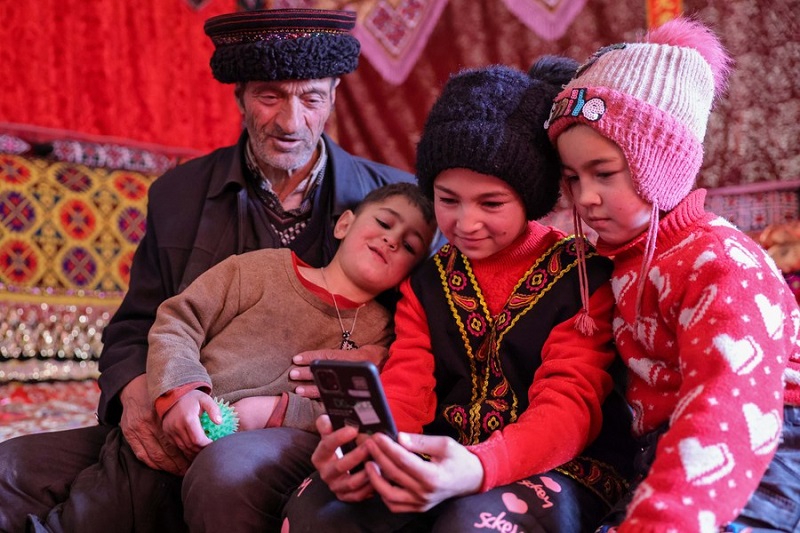Michelle Bachelet continues to stand her ground amid relentless pressure from the West to alter her public statements about what it believes is the human rights situation in Xinjiang, China.
Ms. Bachelet is the United Nations Envoy for Human Rights. She says her near week-long trip to China’s Guangdong and Xinjiang, which took place in late May, should never have been considered an “investigation” into the country or especially the region. That is not sufficient for her critics; they contend she allowed herself to be duped by Chinese officials into believing that there are no widespread human rights violations in Xinjiang.
Ms. Bachelet said she visited a prison and a vocational and training center while in Xinjiang. She added that she also spoke to government officials and leaders of civic, religious and educational institutions.
Western officials were convinced Ms. Bachelet would exit China at the ready to repeat consistent Western allegations of forced sterilization, prison camps and other human rights problems throughout Xinjiang. Western officials contend people who do not uncover these types of examples either refused to look for them or were bamboozled by local and national officials.

The Guardian adequately summed up Western anger when it stated: “Her diplomatic dance with one of the UN system’s most significant stakeholders drew the ire of western governments. The US said China had ‘restricted’ and ‘manipulated’ Bachelet’s visit, while the UK’s Foreign Office vowed to increase international pressure on China to ‘immediately cease its appalling human rights violations in Xinjiang, and release those unjustly detained.’ Activists accused Bachelet – who herself is a survivor of torture in her native Chile – of ‘diminishing’ the credibility of her office and called her visit ‘a betrayal.'”
During a press conference at the end of her Xinjiang tour, Ms. Bachelet commended China for the country’s alleviation of poverty, which Chinese officials say was achieved about 15 months ago. According to the Washington Post, Western officials say such a compliment should never be delivered because it provides China with positive talking points about human rights. The Diplomat provided a deep dive into what eliminating poverty means to China; the magazine acknowledged that such an effort was one of the core promises of President Xi Jinping. Nevertheless, it claimed China had “failed to address the root cause of rural poverty: the underdeveloped rural human capital.”
Ask Chinese officials about this, and they are likely to tell you that alleviating poverty is not the end of all problems; the short list of next steps must include better educational opportunities for China’s youth and improved health care for all. One of China’s premier think tanks, the Chinese Academy of Social Sciences, identified other challenges: “The government needs to implement more effective fiscal and monetary policies, and take measures to create more employment opportunities. Also, efforts should be made to prioritize total employment and address the structural contradictions of the job market.”
In short, no Chinese official is claiming poverty alleviation means China is now a perfect society.

Let us return to Ms. Bachelet, who has been asked to resign, perhaps the most powerful indication that certain Western countries want to excommunicate her. She did not say what she was supposed to say, and she did not do what she was supposed to do. As a result, she no longer can be considered a faithful member of the anti-China brigade. This form of excommunication is nothing new. You might remember the respected journalist Peter Arnett found himself in trouble in 2003 when he questioned the U.S. line about the ongoing war in Iraq. One day after his critical comments about war planning, Mr. Arnett was fired by NBC and the National Geographic. Ms. Bachelet seems certain to face the same fate unless United Nations’ leaders powerfully and consistently support her. Predicting whether they will back her is foolish.
Meanwhile, Chinese officials believe enough is enough when it comes to the nonstop claims of human rights violations in Xinjiang. According to the Global Times, China anticipates the West will demand a follow up investigation and that the person leading that inquiry will demand more answers than Ms. Bachelet did.
As you read this, you might be thinking ‘wait, didn’t the West react this way when the investigation into what might — or might not — have happened inside the Wuhan Institute of Virology was taking place?’ There are plenty of similarities, and they come off as a play in four acts: In both situations, credible people went to China to uncover information. In both situations, those individuals could not substantiate Western allegations of unethical or immoral activities that would violate international norms. In both situations, the West concluded that China either refused to fully cooperate or otherwise kept hidden facts that would serve the Western narrative. In both situations, the West demanded a second investigation, and argued that any sign of China refusing to acquiesce to one would be further proof that China is hiding something.
We can expect this play to be staged again sometime in the future.
The article reflects the author’s opinions, and not necessarily the views of China Focus.